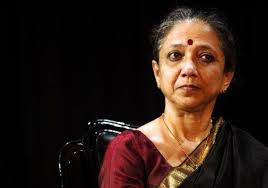
New Delhi, Jan 17: Nine Central Board of Film Certification (CBFC) members resigned from their posts citing interference, corruption in the Information and Broadcasting Ministry.
This comes a day after CBFC chairperson Leela Samson stepped down from her post as she was “tired of” being coerced by politicians, religious groups as well as the government to give certification to films from time to time.
“It’s not only the government but many political parties, religious groups, parliamentarians and individuals who coerce the board to give certification from time to time. I stepped down because I was tired of such things,” Samson had told Deccan Herald.
Another member Iru Bhaskar had also put in her papers in an apparent show of solidarity with Samson.
Samson resigned after the appellate tribunal cleared the screening of the controversial film, 'Messanger of God', which had Dera Sacha Sauda chief Gurmeet Ram Rahim as the lead.





Comments
Add new comment